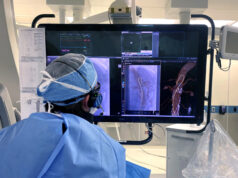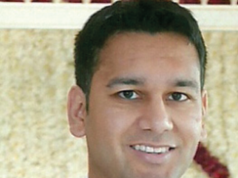
Joseph Lamelas, an internationally recognised expert cardiac surgeon who helped pioneer minimally invasive approaches to cardiac surgery, has joined the University of Miami Health System as chief of cardiothoracic surgery and professor of surgery within the Miller School of Medicine. Lamelas will begin his new role in January 2019.
The renowned surgeon returns to Miami, the city where he spent 26 years perfecting his minimally invasive techniques, after spending two years in Houston, USA, as the associate chief of the Division of Cardiac Surgery at Baylor College of Medicine, CHI St. Luke’s Episcopal Hospital, Texas Heart Institute.
Prior to that, he served as the chief of cardiac surgery at Mount Sinai Medical Center in Miami Beach, Florida where he single-handedly rebuilt their cardiac surgery programme and consistently achieved some of the best cardiac surgery survival rates in the nation.
When practicing in Miami, cardiac surgery outcomes for Lamelas were consistently among the best in Florida, and he performed the highest volume of cardiac surgery in the state with more than 700 cases annually, on average. Lamelas has performed more than 16,000 cardiac surgeries throughout his 28-year career; 7,000 of which have employed a minimally invasive approach.
“Miami is very personal to me so I am very excited to return and be a part of South Florida’s only truly academic medical centre,” said Lamelas. “Cardiac surgery is the pillar of any health care institution, especially in the academic setting which allows you to fully commit to innovation.”
While Lamelas offers patients every cardiac surgical procedure except heart transplant, he is renowned for pioneering and perfecting a minimally invasive approach to cardiac surgery. The techniques he developed and the surgical instruments he invented to facilitate intricate procedures he now applies to almost all cardiac surgeries including aortic and mitral valve replacement, double-valve replacement, triple-valve replacement, repair of congenital cardiac defects, removal of cardiac tumors, bypass surgery, and a minimally invasive approach to replacement of the ascending aorta, a procedure Lamelas himself developed.
Lamelas’ minimally invasive approach, which he named “The Miami Method,” involves a less than two-inch incision on the right side of the chest that does not require opening the breastbone.
“I realised in 2004 that I needed to do something to differentiate myself and advance the field of cardiac surgery,” stated Lamelas. “I began working on a minimally invasive technique and saw the necessity to create new instruments that would help me perform these operations.”
Lamelas has since trained more than 1,000 surgeons from around the world in this approach.
Minimally invasive cardiac surgery results in less physical pain and trauma, less blood loss, reduced risk of infection, shorter hospital stays, quicker recuperation, and better long-term outcomes than more traditional cardiac surgical procedures. In addition, research conducted by Lamelas demonstrates high-risk patients—including the elderly, obese, those with chronic lung diseases, such as COPD, and kidney disease—who are too frail for traditional open-chest operations are better able to withstand a minimally invasive cardiac surgery.













